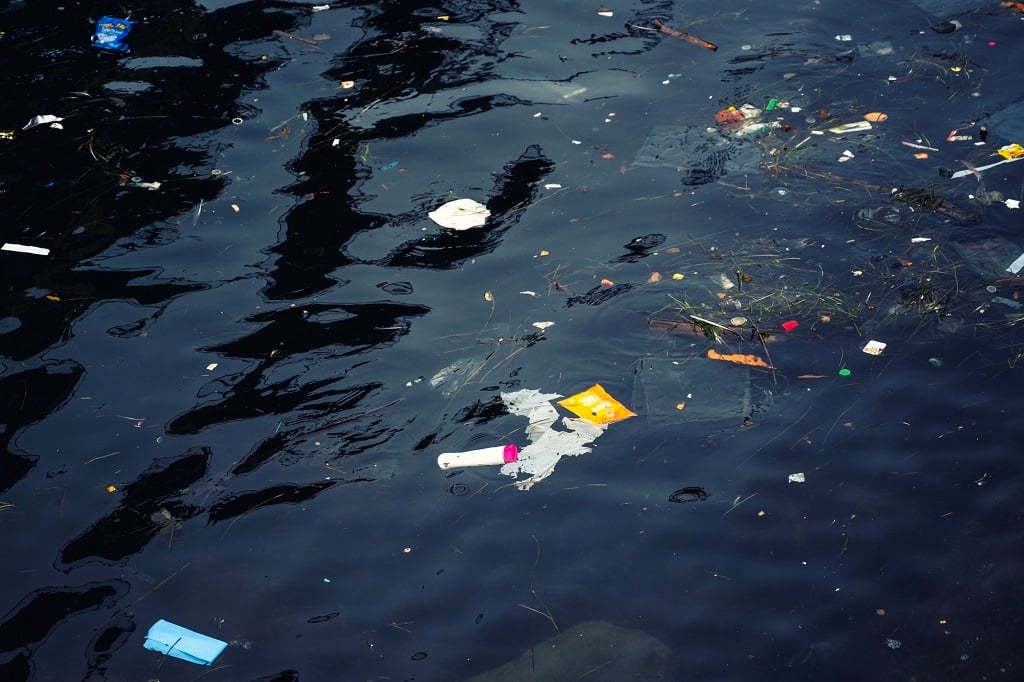
- The fourth round of negotiations for a global teaty to end plastic pollution concluded this week.
- A sticking point in talks was whether or not to limit the production of plastic - most of which is made from fossil fuels and chemicals that cause pollution.
- Wet wipes and even some biodegradable plastics leach hamrful microplastics into the environment, after disposal.
- For climate change news and analysis, go to News24 Climate Future.
This week, the fourth round of treaty talks by the Intergovernmental Negotiating Committee on Plastic Pollution concluded in Ottawa, Canada. A major bone of contention between negotiators from 175 countries is whether or not to limit the production of plastic, most of which is made from fossil fuels and chemicals and which causes pollution after use, as it does not fully or easily biodegrade.
Despite several rounds of talks, the pervasive plastic problem remains unresolved. A final round of talks is scheduled to be held in South Korea at the end of this year.
Amid global struggles to curb plastic pollution, the United Kingdom said last month that it would introduce legislation to ban wet wipes which contain plastic. Wet wipes made with plastic have been shown to leach harmful microplastics into the environment after they have been disposed of.
Everyone knows that plastic bags are a blight on the environment, but what other everyday items – also known as "invisible plastics – unexpectedly contain plastic or harmful "microplastics" and is there a solution?
What are invisible plastics and 'microplastics'?
These are items which are seemingly not made of plastic – such as wet wipes – but which, once disposed of, release plastic into the environment.
"Invisible plastics are everywhere," Tony Walker, a professor at the School for Resource and Environmental Studies at Dalhousie University in Canada who also belongs to the Scientists' Coalition for an Effective Plastics Treaty, said.
"In terms of global plastic production, which includes things like the table I'm sat at, the chair I'm sat on, my computer – you name it, it probably contains a plastic of some kind."
Not all plastic needs to be eliminated, he said, particularly if it is used to make furniture which could last for several decades.
READ | Plastic pollution talks move closer to world-first pact
Single-use items containing plastic should be the focus, he added. These are adding to the "tonnes of plastic that are sitting in our landfills", he said, often leaching harmful microplastics into the environment.
Microplastics are tiny particles of plastic which can even make their way into our food – for example by first being broken down and ingested by fish when they get into the sea. Walker added that even so-called "biodegradable plastic", which is advertised as being able to break down naturally once disposed of, can contain microplastics.
Which unexpected items could contain plastic?
Some other everyday items which surprisingly contain plastic are:
- Chewing gum: A key ingredient used in making chewing gum – "gum base" – actually contains polyvinyl acetate, a plastic which does not biodegrade once the gum is disposed of.
- Tea bags: To retain their shape while they are in hot water, most tea bags are lined with a plastic called polypropylene. The same applies to many coffee filters.
- Sunscreen: Several brands of sunscreen use microplastics as an ingredient in their formula.
- Aluminium cans: Many aluminium cans that contain soda have a lining of plastic to prevent the acid from the soda from reacting with the metal of the can.
- Receipts: Many receipts are printed on thermal paper, which is coated with a layer of plastic to give it a shiny finish, making most paper receipts non-recyclable.
- Toiletries and laundry products: Some toothpaste brands contain tiny beads or micro-beads of plastic which act as exfoliants. These do not degrade or dissolve in water. Micro-beads can also be found in facial scrubs, makeup products and laundry detergent powders.
What are countries doing about this problem?
During a session of the United Nations Environment Assembly in March 2022, a landmark resolution was adopted to draft an international legally binding treaty on plastic pollution.
Under the resolution, an intergovernmental negotiating committee (INC) including representatives from 175 countries, has been holding talks with the aim of drafting a treaty by the end of this year. Previous sessions have convened in Uruguay, France and Kenya. The fourth session wrapped up this week in Canada and the last one will be held between November and December in South Korea.
This time, major disagreements about limiting the amount of plastic manufactured globally arose.
Environmental experts say it is crucial that they reach an agreement on this issue. Plastic production continues to rise around the world and the annual production of fossil fuel-based plastic is projected by the Organisation for Economic Co-operation and Development (OECD) to triple by 2060 if nothing changes.
The head of Greenpeace in Ottawa, Graham Forbes, said that it will be impossible to end plastic pollution without massively reducing plastic production.
"Current global production [of plastic] is over 400 million metric tons [tonnes] annually," said Walker. "However, we're recycling on average as a planet, only 9%. That leaves 91% of 400 million metric tons as waste."
READ | Pollution cleanup means Paris may open first urban beaches on the Seine as soon as next year
Why don't some countries want to reduce plastic production?
This is mainly down to economic factors, experts say.
Some "have vested interest in producing plastic products or petroleum products", Walker explained. These countries believe that stopping the production of plastic would hurt their economies, he added.
Will governments find a solution?
Experts are calling on countries represented at the INC to work much harder to reach a consensus on the production of plastic before the end of this year.
Walker pointed out that plastic is a transboundary pollutant, crossing rivers and borders, meaning countries should have a vested interest in tackling this issue. "Plastics are now in the atmosphere, in the air we breathe, so they're actually travelling between continents on air currents," said Walker.




 Publications
Publications
 Partners
Partners












